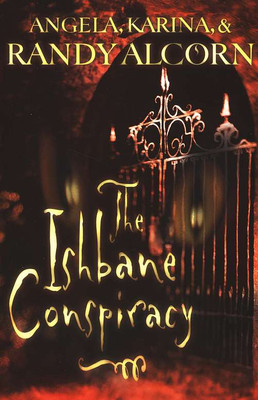Question from a reader:
What is your take on dreams? Can the devil terrorize us through them? Are they merely a sub-conscious thought already there, or can there exist in our dreams a real spiritual battle? I am not aware of the fact that Satan can control my thoughts, as much as I am aware that my sinful nature desires to think impure thoughts. I am fully aware that God knows my thoughts. Does God allow our dreams to give us insight to the spiritual world that is unseen?
Answer from Gerry Breshears, professor at Western Seminary:
Demon assault can be very real. They took on Paul and Jesus, so it's not necessarily a matter of some sin that's giving entrance, as many say.
Ephesians 6:10-20, James 4:7; 1 Pet. 5:6-10 and others command believers to resist, oppose or push away (all are in the semantic domain of the Greek word there). I think the pattern to follow is what Jesus did in Matthew 4: speak well-interpreted and relevant Scripture and then command it: “you go away right now in Jesus' name”
Jesus triumphed over Satan and all his demons through His work of redemption, particularly by canceling the power of sin at the cross. (Matt. 12:28-29; Eph. 1:19-23; Col. 2:13-15) Satan is already condemned. (John 12:31; 16:11; Rev. 20:7-10)
The principle of authority is that we are in the kingdom of Christ. Jesus is Lord and head of all power and authority. Satan has absolutely no legitimate authority over the believer. We are free from Satan's claims upon us. All sins are forgiven, all condemnation is ended, all cultic vows, promises, covenants, etc., were broken when a person comes into Christ's sphere of authority (Col. 1:13-14; 2:9-15). One must never compromise this principle by saying that sin gives a demon legal right to invade a believer or attach itself to your soul. Believe in God; disbelieve Satan.
Our primary weapons against demonic stratagems are faithful application of the fundamentals of the faith (Eph. 6:10-20; 1 Pet. 5:6-9). Light expels darkness.
The only spiritual information to be trusted is from God Himself. This comes through the Bible interpreted naturally. All other knowledge, information, and experience are guilty until proven innocent and suspect even then. Be particularly cautious about deeper meanings or uses of passages out of context. These are the same methods the dark world uses. Any information that comes from demons is always presumed a lie or facts given for dark purposes.
Basic patterns of ministry are found in the Bible. Patterns that differ substantially are always suspect.
Avoid every form of contact with the demonic including astrology, new age paraphernalia, demonic movies and music, charms, séances, games, Ouija, etc. (Lev. 19:26, 31; 20:6; Deut. 18:9-13; Acts 19:18-20)
Using deliverance as a substitute for dealing with our flesh or in place of spiritual disciplines is dangerous.
One must be very careful not to give Satan and his demons too much attention. This can lead to fearfulness or overestimation of his power, to a fascination with evil, or even a kind of satanic worship. Don't know anything more about the demonic than is pastorally necessary. The Bible says nothing about demons' origins, hierarchies, territorial jurisdiction, names, or specific functions. That suggests that we don't need to know these things for success in spiritual warfare. It also suggests that we curb our natural curiosity about such things.
This is a typical pattern of prayer to deal with demonically empowered flesh. It is important to note that the specific wording is unimportant. Power and authority comes from truth:
1. Lord Jesus Christ, I acknowledge that this (name the specific area of sin) may be empowered by demons and evil spirits. If it is, I want nothing to do with them.
2. Lord Jesus Christ I confess that you triumphed over these demons and evil spirits by the power of your shed blood that purchased forgiveness for all my sins and by your death, burial and resurrection that provided my new life in Christ.
3. Lord Jesus Christ I ask that you send any demons and evil spirits away from me. Demon, in the name and authority of Jesus, I command you get away from me, now.
4. Lord Jesus Christ I thank you for hearing and answering my prayer. Please fill me anew with your Holy Spirit so that I will be empowered to live in obedience to you and freedom from sin and harassment.
Getting rid of demons in such cases is done by direct command to the demon in the name of Jesus Christ. One approach centers on the pattern of Mark 9:25 and Acts 16:18. 1) Dear Father, it is by your authority that we proceed to deliver “name” by the power of the Lord Jesus Christ. 2) [to the demon] In the name of the Lord Jesus Christ and by His authority, I command you to leave “name.” You have no right to be here. 3) Father, I pray that you will empower this rebuke I have just issued in Jesus' name.
I may preface the prayer by commanding the demon in the name of Jesus not to hurt anyone and to be silent. I help the believer reaffirm basic theological truths such as those in the first two paragraphs. I do not involve myself in arguments or dialogue with the demon at all. All prayer is done to God in normal tones of voice. Remember, Christ's power, not mine, is at work. I'm only His instrument. Demons are sent away by Christ's authority, not by formulas, rituals, the power of their names, etc. One grave danger of deliverance ministry is a subtle temptation to pride and power.
It is the will of God for every Christian to walk in the freedom of our salvation through the grace of our Lord Jesus Christ, in the fellowship of the Holy Spirit and in the love of the Father. Satan seeks to fool Christians into thinking that he has authority to boss us around. He doesn't! Stop giving the world, the flesh and the devil any opportunity to defeat us. Live free from sin and Satan!
“It is for freedom that Christ has set us free. Stand firm, then, and do not let yourselves be burdened again by a yoke of slavery” (Galatians 5:1).
For more on spiritual warfare, see Randy Alcorn's article What Role Can Satan and Demons Have in the Life of a Believer? and his book Lord Foulgrin's Letters.
Photo by Gregory Pappas on Unsplash






